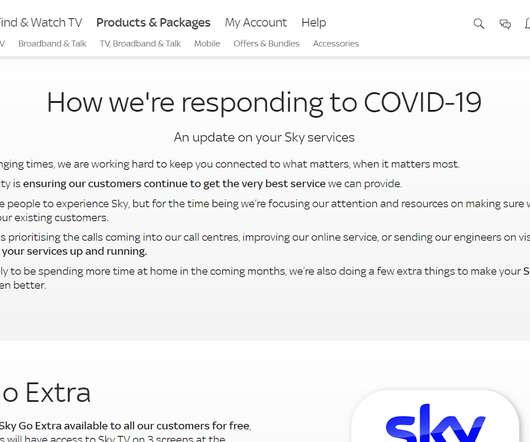Marketing and Growth Lessons for Uncertain Times
ConversionXL
MARCH 19, 2020
It can also keep your employees employed or help you retain your job—a modicum of security in uncertain times. These companies tend to over rely on reducing the number of employees. At the same time, the company contained its operating costs and came out of the recession stronger, bigger, and more profitable than it had been in 1999.











Let's personalize your content